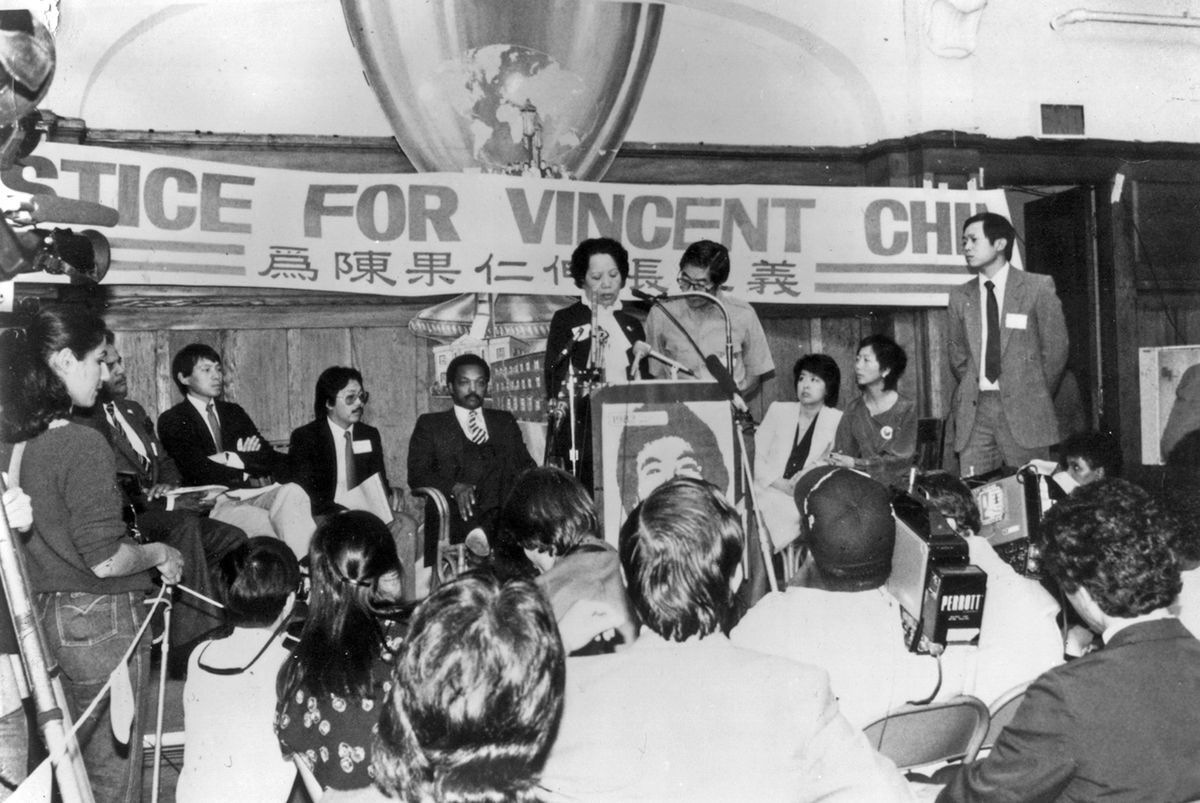
Who Killed Vincent Chin Discussion Guide
At a glance
Film summary
Introduction
This guide is an invitation to dialogue. It is based on a belief in the power of human connection and designed for people who want to use Who Killed Vincent Chin? to engage family, friends, classmates, colleagues, and communities. In contrast to initiatives that foster debates in which participants try to convince others that they are right, this document envisions conversations undertaken in a spirit of openness in which people try to understand one another and expand their thinking by sharing viewpoints and listening actively.
The discussion prompts are intentionally crafted to help a wide range of audiences think more deeply about the issues in the film. Rather than attempting to address them all, choose one or two that best meet your needs and interests. And be sure to leave time to consider taking action. Planning next steps can help people leave the room feeling energized and optimistic, even in instances when conversations have been difficult.
Please be advised that there are a number of disturbing scenes of violence, sexuality, and racist depictions. In terms of language, be aware of profanity and racial slurs throughout the film. Referring to anyone of Asian descent as “oriental” or a Japanese/Japanese American as a “Jap” is inappropriate and racist.
About the Author
Discussion Guide Author, Freda Lin
Freda Lin is the co-director of YURI Education Project, a business that develops curriculum and professional learning with a focus on Asian American and Pacific Islander stories. She began this work as a student activist leader for Asian American Studies at Northwestern University. This led her to become a middle and high school teacher to integrate these and other marginalized stories in schools. She taught history and leadership at Chicago and San Francisco Bay Area schools for 16 years. After leaving the teaching field, she facilitated social movement history tours with Freedom Lifted and consulted with the Center for Asian American Media and UC Berkeley History-Social Science Project. She also served as the education program director of the Fred T. Korematsu Institute, where she implemented new programming to promote awareness of the World War II Japanese American incarceration experience and its connection to current issues. Freda currently serves on the National Council for History Education Board of Directors.
Discussion Guide Producer, POV
Courtney Cook, PhD || Education Manager
William Tolliver, Jr || Education Assistant
Special thanks to those who contributed to this resource:
Renee Tajima-Peña
Thanks to those who reviewed this resource:
Juanita Anderson
Natalie Danford, Copyeditor
 Jardines Discussion Guide
Jardines Discussion Guide  Hummingbirds Discussion Guide (Spanish)
Hummingbirds Discussion Guide (Spanish)  Between Goodbyes
Between Goodbyes  La Orquesta
La Orquesta